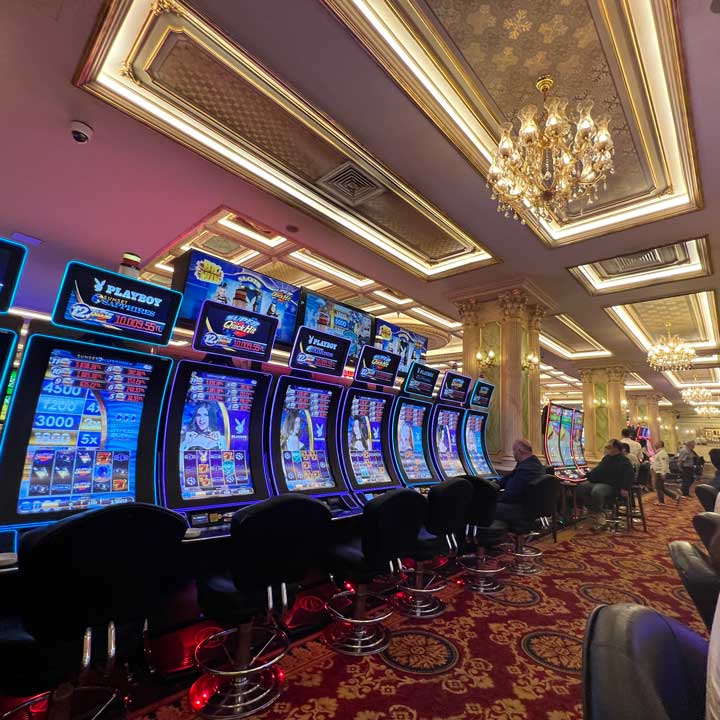
Casino entertainment have long been a captivating source of amusement, drawing millions of players from varied cultures around the globe. From the opulent casinos of Las Vegas to the thriving gambling halls of the Chinese gambling capital, these games serve as a common thread that brings together people across various backgrounds. The allure of chance, skill, and uncertainty entices not only those hoping to strike it rich but also those in search of a feeling of belonging.
The cultural impact of casino games extends well beyond the gaming floor. They often embody the values and beliefs of the societies in which they prosper. Games such as poker, 21, and roulette have woven themselves into the fabric of popular culture, influencing various aspects from movies to style. As we explore this captivating intersection of chance and culture, we can gain insights into how gambling games shape and are shaped by the world around us.
Historical Evolution of Gaming Games
The roots of gambling games can be tracked back to old cultures, where betting in various forms was widely performed. In China, around two thousand three hundred years before Christ, a variant of luck game known as Keno was common, while in ancient Rome, soldiers would regularly bet on the consequences of their contests. The notion of using luck for entertainment and profit evolved over the centuries, leading to the establishment of more formal games. By the late Middle Ages, betting houses began to appear in European nations, especially in Italy, which brought forth early forms of well-liked activities still enjoyed today.
As gambling expanded popularity in Europe, the 17th and 18th centuries saw the emergence of gaming houses as exclusive locations for betting. The earliest official casino, the Ridotto, was established in Venice in sixteen thirty-eight, providing games like the game of Baccarat and Faro. This era marked a significant turning point, as gaming venues began to draw not just the elite but also the growing middle class. The sophistication of activities increased, leading to the creation of new rules and modifications that improved the gaming experience.
In the 19th century, the industrial revolution and transformations in social conventions additionally altered the landscape of gambling games. The launch of the game of roulette and modern slot machines pulled in a broader audience, and gaming houses became seen as acceptable recreation. https://ga179.xyz/ This era witnessed the worldwide proliferation of casino activities, as gambling houses expanded from Europe to the New World, culminating in the development of the famous Las Vegas Strip in the 1900s. The progress of gambling games has progressed into the present day, integrating new technologies and digital sites, rendering them open to a global market.
### Cultural Importance in Different Cultures
Casino games have deep-rooted social importance across many communities throughout the world. For instance, in Las Vegas, the very fabric of the urban landscape is woven around casinos, where gaming is not just a hobby but a central aspect of leisure and community life. The vivid lights and dynamic atmosphere attract a vast audience, showcasing how casino games can influence local financial landscapes and local cultures. This surrounding transforms the notion of relaxation into an engaging event that shapes apparel, music, and even cinema.
Conversely, some communities approach wagering with an air of caution, considering it through the lens of ethical considerations and tradition. A case in point, in many Oriental communities, games like Mahjong and Pai Gow Gambling are rich with history and carry significant social implications. These games are often played during gatherings and occasions, fostering collective connections and strengthening kinship ties. The act of engaging in these games goes beyond mere entertainment, reflecting principles such as honoring elders and the significance of shared enjoyment.
Meanwhile, in continental countries such as Monte Carlo and Rome, games of chance serve as symbols of wealth and refinement. The refined atmosphere of these locations attracts both tourists and residents, reinforcing a sense of status and rarity. The art of Texas Hold’em and the strategic features of games like baccarat are esteemed, influencing interpersonal interactions and establishing an allure that captivates a heterogeneous audience. This underscores how casino games can simultaneously mirror and influence cultural attitudes towards hazard, benefit, and relationship building.
Financial Influence and Travel Industry
Casino games play a significant role in the economic landscape of many areas, particularly those that rely heavily on visitor traffic. The revenue generated from casino operations fuels local financial systems, creating jobs not only within the casinos themselves but also in connected industries such as hotel management, restaurant services, and recreation. This surge of tourists, drawn by the attraction of gambling and the overall gaming environment, stimulates spending across multiple businesses, contributing to the economic vitality of the region.
The existence of casinos often leads to the construction of infrastructure, including hotels, transportation systems, and leisure amenities. These developments are essential in enhancing the overall visitor satisfaction, making locations more appealing to visitors. Additionally, many casinos contribute in local communities through support of activities and charitable initiatives, further integrating themselves into the social fabric of the region. Such investment not only supports economic growth but also fosters a positive image of the casino industry.
Furthermore, the global popularity of casino games drives competitive tourism, with regions vying to attract players from across the globe. Iconic destinations like Las Vegas and Macau have become synonymous with casino culture, drawing millions annually. This competitive edge encourages creativity and diversification within the gambling sector, influencing developments in entertainment and hospitality that resonate beyond their limits. The consequences of this visitor influx extend far, impacting local financial health and cultural interactions on a global scale.
